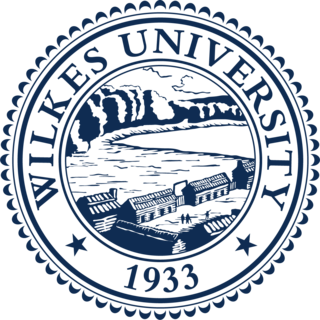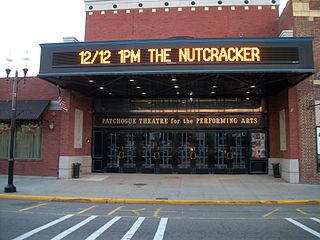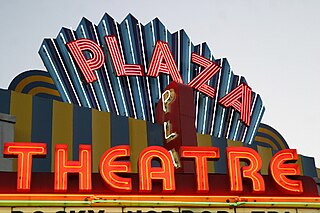Related Research Articles

Wilkes-Barre is a city in and the county seat of Luzerne County, Pennsylvania, United States. Located at the center of the Wyoming Valley in Northeastern Pennsylvania, it had a population of 44,328 in the 2020 census. It is the second-largest city, after Scranton, in the Scranton–Wilkes-Barre–Hazleton, PA Metropolitan Statistical Area, which had a population of 567,559 as of the 2020 census, making it the fifth-largest metropolitan area in Pennsylvania after the Delaware Valley, Greater Pittsburgh, the Lehigh Valley, and Greater Harrisburg.

Luzerne County is a county in the Commonwealth of Pennsylvania. According to the United States Census Bureau, the county has a total area of 906 square miles (2,350 km2), of which 890 square miles (2,300 km2) is land and 16 square miles (41 km2) is water. It is Northeastern Pennsylvania's second-largest county by total area. As of the 2020 census, the population was 325,594, making it the most populous county in the northeastern part of the state. The county seat and most populous city is Wilkes-Barre. Other populous communities include Hazleton, Kingston, Nanticoke, and Pittston. Luzerne County is included in the Scranton–Wilkes-Barre–Hazleton Metropolitan Statistical Area, which has a total population of 555,426 as of 2017. The county is part of the Northeast Pennsylvania region of the state.

Hazleton is a city in Luzerne County, Pennsylvania, United States. The population was 29,963 at the 2020 census. Hazleton is the second-most populous city in Luzerne County. It was incorporated as a borough on January 5, 1857, and as a city on December 4, 1891.

Wilkes University is a private university in Wilkes-Barre, Pennsylvania. It has over 2,200 undergraduates and over 2,200 graduate students. Wilkes was founded in 1933 as a satellite campus of Bucknell University, and became an independent institution in 1947, naming itself Wilkes College, after English radical politician John Wilkes after whom Wilkes-Barre is named. The school was granted university status in January 1990. It is classified among "Doctoral/Professional Universities" (D/PU) and accredited by the Middle States Commission on Higher Education.

Paul Edmund Kanjorski is an American politician who was the U.S. representative for Pennsylvania's 11th congressional district from 1985 until 2011. He is a member of the Democratic Party.
The Times Leader is a privately owned newspaper in Wilkes-Barre, Pennsylvania.

The Olympia Theater is a theater located in Miami, Florida. Designed by John Eberson in his famed atmospheric style, the theater opened in 1926. Throughout its history, the venue has served as a movie theater, concert venue and performing arts center. In 1984, it received historical designation by the NRHP. The Olympia Theatre, the Florida Theatre, and the Tampa Theatre are the only remaining atmospheric theatres in Florida.

An atmospheric theatre is a type of movie palace design which was popular in the late 1920s. Atmospheric theatres were designed and decorated to evoke the feeling of a particular time and place for patrons, through the use of projectors, architectural elements and ornamentation that evoked a sense of being outdoors. This was intended to make the patron a more active participant in the setting.

The Saenger Theatre is a historic theater and contributing building to the Lower Dauphin Street Historic District in Mobile, Alabama. It was dedicated in January 1927. The Saenger Theatre is a Mobile landmark, known for its architecture and ties to local cultural history. The theater has been completely renovated in recent years with an upgraded electrical system, VIP facilities, new stage rigging and sound system. It is the official home of the Mobile Symphony Orchestra and also serves as the venue for movie festivals, concerts, lectures and special events.
Erie Playhouse is a historic theatre located in Erie, Pennsylvania.

The Empress Theatre is a historical landmark located in downtown Vallejo, California built in 1911. It was re-opened in 2008 after nearly 20 years of disuse following the 1989 Loma Prieta earthquake. The one room movie house has undergone complete renovation and seismic retrofit. Operated as a non-profit, it now shows movies, hosts live performances, and is rented for private events.
The Little Theatre on the Square is a theater in Sullivan, Illinois. It is located in Sullivan's town square on Harrison Street. It is the only professional theater between Chicago and St. Louis.

Patchogue Theatre for the Performing Arts is Located at 71 East Main Street in Patchogue Village, Suffolk County, New York.

The Civic Center Music Hall is a performing arts center located in Oklahoma City, Oklahoma. It was constructed in 1937 as Municipal Auditorium and renamed in 1966. The facility includes the Thelma Gaylord Performing Arts Theatre, the Freede Little Theatre, CitySpace, the Meinders Hall of Mirrors and the Joel Levine Rehearsal Hall.

The Plaza Theatre is a movie theatre located in Atlanta, Georgia. Opened in 1939, it is Atlanta's longest continuously operating independent movie theatre and a city landmark.

The Wilkes-Barre and Hazleton Railway was an electric railway in Luzerne County, Pennsylvania connecting the cities of Wilkes-Barre and Hazleton. It operated from 1903 to 1933 using a third rail and had no grade crossings. It was approximately thirty miles long and had one tunnel between Warrior Run and Nuangola through Penobscot Knob which Interstate 81 now crosses.

The F. M. Kirby Center is a historic Art Deco-Moderne style movie theater located at Wilkes-Barre, Pennsylvania. It was added to the National Register of Historic Places in 1980.

The Paramount Theatre was a movie palace in downtown Atlanta, Georgia, United States. The building was designed by Philip T. Shutze and was completed in 1920 as the Howard Theatre, a name it kept until 1929. It was located at 169 Peachtree Street, in an area that soon became the location of several other major theaters, earning it the nickname "Broadway of the South". With a seating capacity of 2,700, it was at the time the second largest movie theater in the world, behind only the Capitol Theatre in New York City. In addition to functioning as a movie theater, the building hosted live performances, with several nationally renowned orchestras playing at the venue through the 1940s and Elvis Presley playing at the theater in 1956. By the 1950s, however, movie palaces faced increased competition from smaller movie theaters and the rise in popularity of television, and the Paramount was demolished in 1960.

Haystack Mountain (Pennsylvania), is an otherwise non-descript 1871 ft peak forming the steep southwestern faces of the Solomon Gap mountain pass's saddle connecting and dividing the Wyoming Valley from the Lehigh Valley.
The Mauch Chunk Opera House, formerly known as the Capitol Theater, is a theatre in Jim Thorpe, Pennsylvania in the United States.